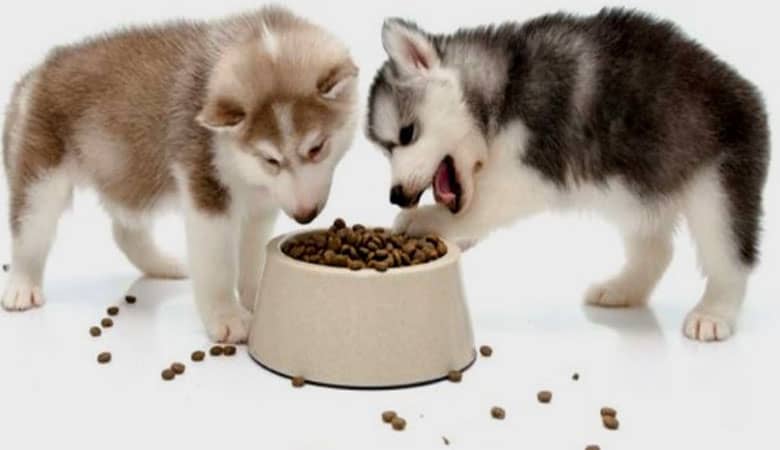Keeping your husky healthy is important. Luckily, you’ll find plenty of great foods to give your dog, if you know where to look. These foods are easy to prepare and will keep your dog fit and healthy and increase your Husky’s life expectancy.
Carrots
Whether you’re feeding a new puppy or an adult dog, adding carrots to their diet can provide a number of benefits. Carrots are full of vitamins and minerals, and they are low in calories. Carrots are also great for dogs who are teething.
Carrots contain fiber, which can help with digestive problems. Fiber can also help dogs lose weight. Carrots also contain potassium and magnesium, which are important for healthy bones.
Carrots also contain vitamin A, which is important for healthy skin and coat. Vitamin A also helps with cell function and hormone regulation.
Asparagus
Whether you’re looking for a healthy dog treat or a nutrient-rich side dish, asparagus is a great choice. It’s easy to prepare, inexpensive, and packed with a wide variety of vitamins and minerals.
Asparagus has a lot of vitamins and minerals to offer your dog, including antioxidants. Antioxidants are substances that help fight free radicals, which can damage cells and cause chronic disease. They also fight inflammation.
Another good thing about asparagus is that it’s a source of calcium. Calcium is important for a dog’s bones. It also helps maintain the immune system and supports endocrine function.
Carrot juice
Whether you want to feed carrots to your dog or just give them as a treat, there are several ways you can do it. Carrots are a great treat for dogs because they are high in fiber. This is a nutrient that your dog needs to keep his or her digestive system running smoothly. It helps with weight loss, improves bowel movements, and prevents constipation.
The best way to feed carrots to your dog is by juicing them. This will help you preserve all the vitamins and nutrients that carrots have to offer.
Cantaloupe
Whether your dog likes cantaloupe or not, there are plenty of reasons to consider putting it in his diet. It is one of the few fruits that contains vitamin C, and it also has anti-inflammatory properties. It is also a great source of fiber, which helps dogs get rid of intestinal waste. It also contains potassium, which is a mineral that plays a major role in maintaining blood acidity levels and muscle movement.
While cantaloupe is good for your dog, it is not without its drawbacks. It is best to serve your dog small pieces in order to avoid choking accidents. It is also important to feed it in moderation, because it contains a high concentration of sugar. If you are unsure about whether or not your dog is able to handle the sugar content, speak with your veterinarian.
Broccoli
Besides being an excellent source of fiber and vitamin C, broccoli also contains a variety of trace elements. Broccoli is rich in antioxidants that can fight inflammation in the dog’s body. These antioxidants can help to prevent chronic disease and to maintain a healthy heart.
Broccoli contains a compound called sulforaphane, which activates the antioxidant systems in the dog’s body. This compound is an isothiocyanate, a sulfur-containing compound.
Besides sulforaphane, broccoli also contains other antioxidants such as lutein, zeaxanthin, and carotenoids. Carotenoids are plant pigments. These nutrients are important for eye health and skin health. They also help to keep free radicals in check.
Almond milk
Despite their cold climate, huskies still need a healthy layer of fat and protein in their diet. This is where almond milk can help. It’s a natural dairy substitute that’s easy on the pocket and provides dogs with the nutrients they need. However, it’s important to watch the quantity you feed your husky.
One cup of almond milk contains 2.5 grams of fat and about one gram of carbohydrates. It also contains potassium, which is important for controlling muscle activity.
Almonds also contain vitamin E, which is an antioxidant. This vitamin is important for reducing oxidative stress in the cells. It also helps support brain health and helps metabolize proteins.
Cherries
Whether or not you want to feed your dog cherries, you should be aware of the risks. Some fruits are toxic to dogs, while others contain nutrients that can help prevent cancer. You should always check with your veterinarian before you give your dog any new foods.
Cherries are an excellent source of vitamins, antioxidants, and fiber. Some people believe that cherries can help treat arthritis, which causes pain, stiffness, and inflammation in joints. It is also thought that cherries can help control blood sugar. They can be a great snack for your dog, but if you give your dog too many, it may lead to obesity and diabetes.

